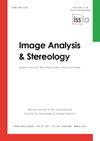Morphological Assessments of Root Apex of Permanent Mandibular First and Second Premolars in a Turkish Population
IF 1
4区 计算机科学
Q4 IMAGING SCIENCE & PHOTOGRAPHIC TECHNOLOGY
引用次数: 0
Abstract
There is no apical morphological data being available for mandibular first or second premolars in the Turkish population. The aims of the study were (I) to assess apical morphological data of mandibular first and second premolars in a Turkish population at a young-adult age range (II) to analyze potential correlations between the size and position of the apical foramina (AF). Extracted sound teeth were collected from an adult volunteer population as willing to donate. Morphological data were obtained from specimens using a stereomicroscope. The number, size, shape, and position of AF and frequency of accessory foramina were quantified. Mann-Whitney U and Spearman's rank correlation tests were performed (α=0.05). A total of 237 teeth were investigated. The majority of the specimens had one major AF. The frequency of major AF was between 1–3 for both groups. The median AF size in mandibular first and second premolars were 55,180 µm2 and 67,483 µm2, respectively. The majority of foramina shape was irregular for the mandibular first premolars whereas, was oval for the second premolars. The median location of AF with respect to the anatomic apex was 664 µm in mandibular first premolars and 677 µm in mandibular second premolars. The size and location of AF mostly overlap between the mandibular first and second premolars. The shape of the AF might be the only relevant variation concerning the apical morphology between the mandibular first and second premolars in young adults. The interaction between the size and location of AF in mandibular premolars of young adults seems not significant土耳其人恒下颌第一和第二前磨牙根尖的形态学评价
没有根尖形态的数据是可用的下颌第一或第二前磨牙在土耳其人口。该研究的目的是(1)评估土耳其青年人群下颌第一和第二前磨牙的根尖形态学数据(2)分析根尖孔(AF)的大小和位置之间的潜在相关性。从愿意捐献的成年志愿者人群中收集拔出的健全牙齿。形态学数据是用体视显微镜从标本中获得的。量化心房颤动的数量、大小、形状、位置和副孔的频率。采用Mann-Whitney U和Spearman’s秩相关检验(α=0.05)。总共调查了237颗牙齿。多数标本均有一次严重房颤,两组发生严重房颤的频率均在1 ~ 3次之间。下颌第一、第二前磨牙房颤中位大小分别为55,180µm2和67,483µm2。下颌第一前磨牙的牙孔形状不规则,第二前磨牙的牙孔形状为椭圆形。下颌第一前磨牙AF中位距解剖尖664µm,下颌第二前磨牙AF中位距解剖尖677µm。房颤的大小和位置多与下颌第一、第二前磨牙重叠。房颤的形状可能是年轻人下颌第一和第二前磨牙的根尖形态的唯一相关变异。青壮年下颌前磨牙房颤的大小和位置之间的相互作用似乎不显著
本文章由计算机程序翻译,如有差异,请以英文原文为准。
求助全文
约1分钟内获得全文
求助全文
来源期刊

Image Analysis & Stereology
MATERIALS SCIENCE, MULTIDISCIPLINARY-MATHEMATICS, APPLIED
CiteScore
2.00
自引率
0.00%
发文量
7
审稿时长
>12 weeks
期刊介绍:
Image Analysis and Stereology is the official journal of the International Society for Stereology & Image Analysis. It promotes the exchange of scientific, technical, organizational and other information on the quantitative analysis of data having a geometrical structure, including stereology, differential geometry, image analysis, image processing, mathematical morphology, stochastic geometry, statistics, pattern recognition, and related topics. The fields of application are not restricted and range from biomedicine, materials sciences and physics to geology and geography.
 求助内容:
求助内容: 应助结果提醒方式:
应助结果提醒方式:


